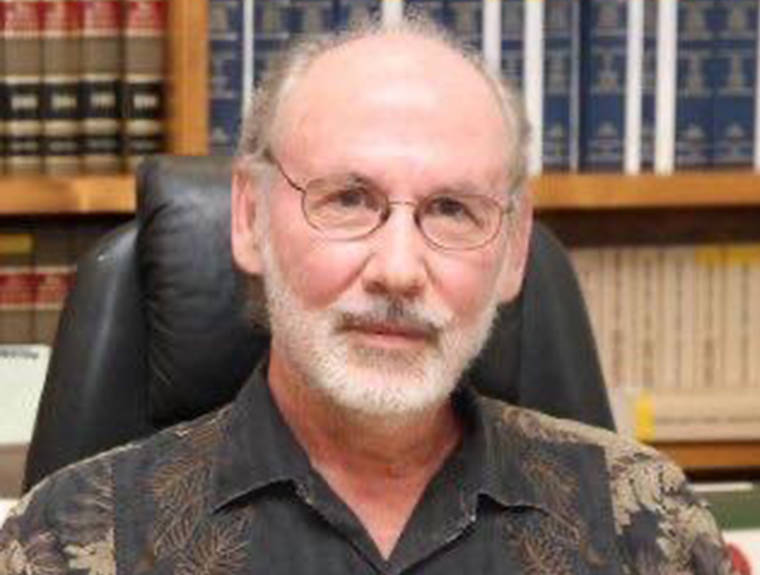Letters by the Big Island’s prosecutor and a pair of Oahu legislators object to the manner in which inmates are being released pursuant to a state Supreme Court order that seeks to prevent an outbreak of COVID-19 in Hawaii’s jails and prisons.
A May 12 letter by Hawaii County Prosecutor Mitch Roth to Daniel R. Foley, a retired appeals judge tasked by the high court to oversee the reduction in inmate population in Hawaii’s historically crowded correctional facilities, said his office is “very concerned about defendants who are repeat offenders, who after release, committed more crimes in the community.”
The letter said some of the offenders released “did not fit into the original group of offenders sought to be released” by a petition to the Supreme Court by the state Office of the Public Defender.
Roth wrote violent offenders “have been released over by the court(s) over state’s objections” and that some defendants “have been rearrested twice in one week.”
He said those defendants “have no incentive to change their behavior because the pattern established for them now is they will be released over state objections.”
According to Roth, those releases have “created a tipping point … where the release of dangerous and repeat offenders is more dangerous than the possibility of an outbreak overwhelming our care system.”
And a May 13 letter to Chief Justice Mark Recktenwald from Oahu Reps. Gene Ward and Bob McDermott, both Republicans, called for the Supreme Court to “please discontinue the early releases” under the Public Defender’s petition. The legislators added the reason for the Supreme Court’s order “is not valid since there has not been a single case of COVID-19 in any of the state’s correctional facilities.”
As of Monday, Hawaii Community Correctional Center reports an inmate population of 241, a slight uptick from the 235 reported on April 30. That’s 35 inmates more than the design capacity of 206 targeted by the Supreme Court’s mandate, but a reduction of 154 inmates from March 2, when a population of 395 was reported.
More than 800 inmates have been released statewide since the court order.
“There has been no assurance that these offenders are non-violent, which is evident by the recent murder committed, allegedly by a newly released prisoner,” the lawmakers wrote, an apparent reference to 20-year-old Daniel Pookela Baang, accused of a May 2 fatal stabbing in Aiea, Oahu. According to Hawaii News Now, Baang had been released by a judge on charges of harassment and property damage due to COVID-19 housing recommendations.
“The likelihood that these inmates will re-offend is very high, especially during this chaotic time,” Ward and McDermott wrote.
On the Big Island, Kona District Judge Margaret Masunaga granted, over the objection of prosecutors, court-supervised release without cash bail to 66-year-old James Bonham of Captain Cook, who’s charged with second-degree murder for fatally shooting his 45-year-old son, Joshua Bonham, on April 28. Bonham admits to the shooting, but said it was in self-defense.
Bonham is subject to electronic monitoring.
The legislators also objected the possibility of domestic abusers being released back into the same home as their victims, as well as inmates being released into a homeless situation.
Foley appeared Monday before the House Select Committee on COVID-19 Economic and Financial Preparedness.
James Koshiba, a founder of Hui Aloha, a volunteer-driven outreach organization focused on the homeless community, told the retired judge he’s seen “an increase in the number of people in encampments that have come straight from incarceration as part of the early release program.”
“Folks coming out of incarceration are not eligible for many of the homeless and houseless services because they’re targeted for chronically homeless folks,” Koshiba said, describing the recently incarcerated homeless as a “gap group.”
He added that it “would be greatly appreciated” if Foley and Department of Public Safety officials “could put eyes on” the issued and direct resources toward it.
Foley told the committee all motions for COVID-19-related early release of inmates by the Public Defender were filed by April 28 and the focus now shifts to the Hawaii Paroling Authority.
“They’re beginning to review inmates who are short-termers — six months, a year left in their sentence — and those who are very sick or who are elderly,” Foley said.
Roth noted in his letter that he’s “received media inquiries” — including a request by the Tribune-Herald — “to release a list of defendants released for COVID-19 reasons.”
“We have taken the position that we are barred from making … statements that could unfairly prejudice a criminal defendant whose matter is pending,” the prosecutor wrote. “However, as more repeat offenders and people committing serious crimes are being released come to the attention of the community, public trust in the rule of law suffers.”
Ward and McDermott opined “the COVID-19 pandemic is being used as an excuse to release prisoners with no public input and scant public awareness” and noted “lists of the potential inmates to be released has not been made readily available to the public, nor have the names of inmates that have been released.”
“The people of Hawaii have the right to know who these individuals are since it impacts the safety of our neighborhood,” the lawmakers said.
On Friday, the House Finance Committee on Friday amended a Judiciary supplemental appropriations bill to add wording that, if passed, would order the Judiciary to provide the Legislature a weekly list of offenders released from Hawaii’s correctional facilities.
Email John Burnett at jburnett@hawaiitribune-herald.com.


